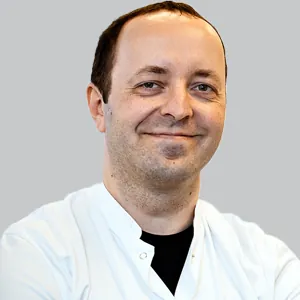
Breakthrough for Dementia: Vesper Launches Innovative Trial for VES001 to Combat Frontotemporal Dementia
2025-01-11
Author: John Tan
Introduction
In a groundbreaking development for the treatment of frontotemporal dementia (FTD), Vesper has officially initiated the Phase 1b/2a clinical trial, known as SORT-IN-2, to evaluate the investigational drug VES001. This innovative therapy specifically targets patients with genetic mutations in the progranulin-coding gene (GRN), a critical factor that contributes to the onset of FTD. The trial commenced recently, with plans to complete dosing for all participants by mid-2025.
Trial Design and Objective
Conducted at the prestigious Erasmus University Medical Center in The Netherlands, this open-label trial employs a multiple ascending dose (MAD) design within a single cohort. Participants will be evaluated at two distinct dosage levels—360 mg and 900 mg—over a three-month treatment period. The primary outcome measure will analyze changes in progranulin levels in cerebrospinal fluid (CSF) and plasma at specific intervals, reinforcing the importance of monitoring biomarkers in this challenging disease. Notably, the study will utilize existing medical histories for confirming GRN mutations without additional genetic testing.
Innovative Mechanism of Action
VES001 boasts a unique approach by targeting sortilin, a receptor that decreases progranulin by binding and degrading it. This reduction in extracellular progranulin has been linked to neurological health concerns. By normalizing levels of this crucial protein through a convenient daily oral regimen, VES001 holds promise as a potentially transformative treatment for a patient demographic that is currently underserved by effective therapies.
Expert Insights
Mads Fuglsang Kjölby, co-founder and interim chief medical officer at Vesper, stated, “The aim of this study is to further demonstrate the safety and tolerability of VES001 while confirming its positive effect on progranulin levels in patients’ cerebrospinal fluid and blood plasma. Progranulin plays a vital role in maintaining neuronal health; however, patients with GRN mutations typically exhibit levels that are significantly lower than those without.”
Eligibility Criteria
Eligibility for the study is limited to asymptomatic carriers of the GRN mutation, who have been validated through prior genetic testing. Participants must meet specific health criteria, including a body mass index (BMI) between 18 and 32 kg/m² and a minimum weight of 50 kg. Importantly, rather than solely relying on genetic predispositions, careful assessments through medical histories and physical exams will be undertaken to ensure participant safety.
Exclusion Criteria and Compliance
To maintain the integrity of the trial, a range of exclusion criteria has been established. Individuals with chronic diseases, existing neurological conditions, or those who have experienced significant cognitive decline will not be eligible. Moreover, participants must possess a solid understanding of either Dutch or English to guarantee compliance with study requirements.
Company Leadership Statements
Vesper’s CEO, Paul Little, expressed enthusiasm about the progress: “It is an incredible achievement by the Vesper team that we have been able to advance VES001 so quickly into this clinical trial phase. We are committed to bringing this essential new oral treatment option to families affected by FTD, filling a significant gap in therapy where options are currently nonexistent.
Previous Investigations and Future Outlook
Previous clinical investigations of VES001 have demonstrated promising safety profiles. The Phase 1 study of healthy volunteers showcased the drug's tolerability across multiple doses, without serious adverse events. This early data has paved the way for greater expectations in the SORT-IN-2 trial.
Conclusion
As Vesper makes strides in the fight against frontotemporal dementia, the scientific community and patients alike are hoping for positive outcomes that could revolutionize treatment options and provide hope where there has been little before. Stay tuned for more updates on this exciting journey toward a world free from the challenges posed by FTD.
 Brasil (PT)
Brasil (PT)
 Canada (EN)
Canada (EN)
 Chile (ES)
Chile (ES)
 Česko (CS)
Česko (CS)
 대한민국 (KO)
대한민국 (KO)
 España (ES)
España (ES)
 France (FR)
France (FR)
 Hong Kong (EN)
Hong Kong (EN)
 Italia (IT)
Italia (IT)
 日本 (JA)
日本 (JA)
 Magyarország (HU)
Magyarország (HU)
 Norge (NO)
Norge (NO)
 Polska (PL)
Polska (PL)
 Schweiz (DE)
Schweiz (DE)
 Singapore (EN)
Singapore (EN)
 Sverige (SV)
Sverige (SV)
 Suomi (FI)
Suomi (FI)
 Türkiye (TR)
Türkiye (TR)
 الإمارات العربية المتحدة (AR)
الإمارات العربية المتحدة (AR)